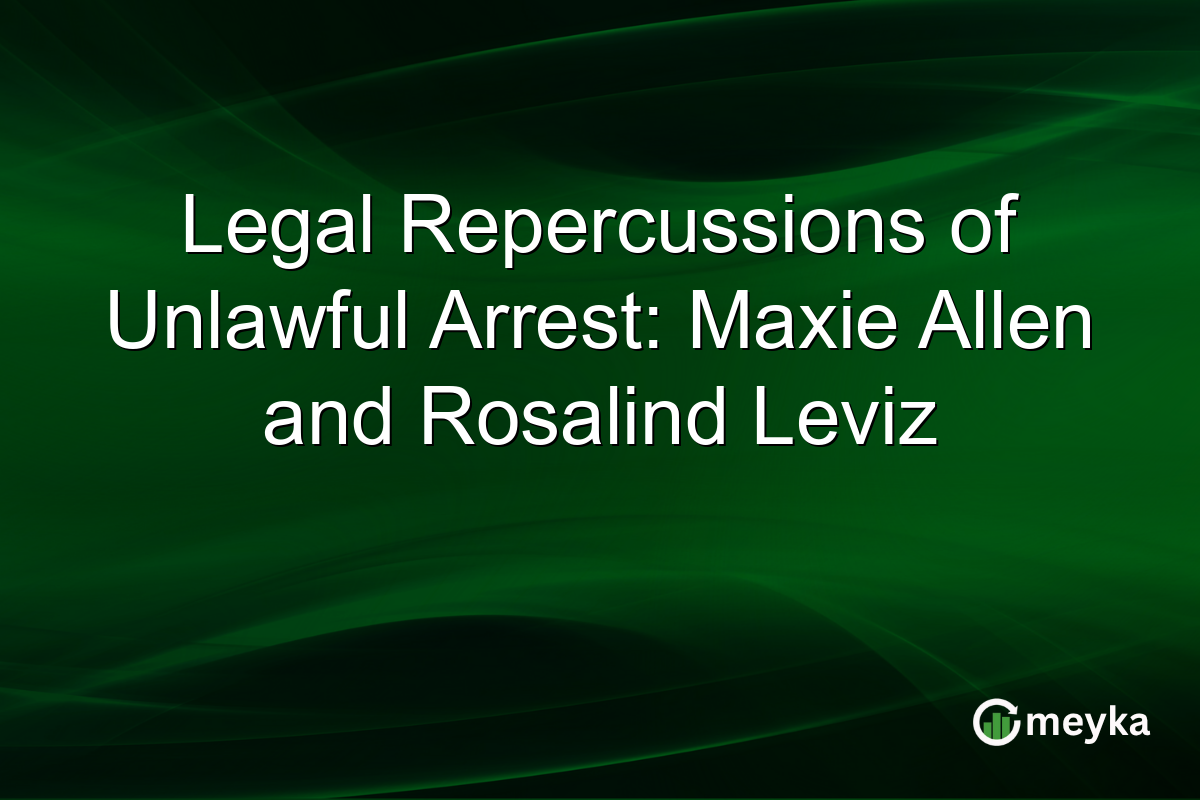Legal Repercussions of Unlawful Arrest: Maxie Allen and Rosalind Leviz
Unlawful arrests are not just procedural errors but significant legal violations with far-reaching consequences. Recently, Hertfordshire Police faced serious backlash for the unlawful arrest of Maxie Allen and Rosalind Leviz. This case has highlighted the critical legal and financial implications for law enforcement when such situations occur. The police have admitted wrongdoing, resulting in a substantial £20,000 compensation for wrongful detention. This incident serves as a crucial reminder of the need for accountability and proper procedures in law enforcement.
Continue Reading on Meyka
This article is available in full on our main platform. Get access to complete analysis, stock insights, and more.
Read Full Article →





